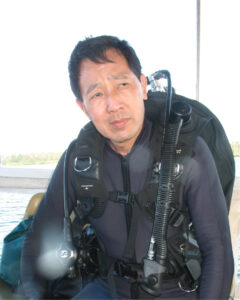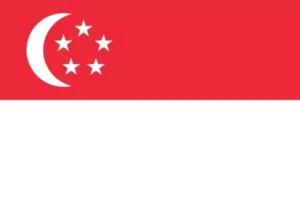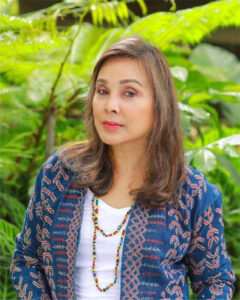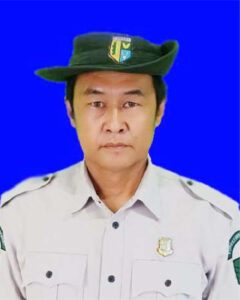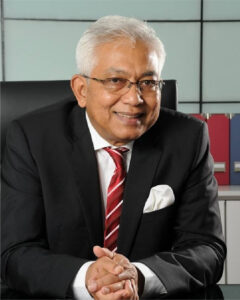Marine conservation trailblazer inspires younger generations to take up conservation cause
To say that Professor Chou Loke Ming is an unrelenting champion of marine protection and conservation is an understatement. His potent call to action, “If the corals have not given up, neither should we,” is held close to heart by marine conservationists who have followed his footsteps.
For more than 40 years, Prof. Chou has been a respected and recognized pioneer of marine conservation not only in Singapore, but also within the region and around the world. Of all his valuable contributions that have created a lifelong impact on biodiversity conservation in the country, the most inspiring testament to his success is the different generations of marine scientists, academics, and researchers that he has mentored.
As a former professor at the National University of Singapore’s (NUS) Department of Biological Sciences, he has supervised over 50 students who have earned their doctorate and master’s degrees, countless undergraduate research students, as well as visiting scholars from various universities. Through his leadership, guidance and influence, Prof. Chou has enabled marine conservation in Singapore to progress in leaps and bounds over the past decades. His legacy is also evident in the unity which the coral reef research community exhibits in their efforts to continue the good work that he has started.
Prof. Chou, who was awarded an Emeritus Professorship by the NUS in July 2019, continues to communicate his passion and optimism for the marine environment through invited lectures, public seminars, media interviews and grassroots initiatives that involve the general public and more importantly, the youth.
In addition to shaping the minds of Singapore’s marine biodiversity champions, Prof. Chou has dedicated his time and efforts in studying coral reef biology, coastal management, and reef restoration in Southeast Asia and beyond. He has published over a thousand academic papers, books, book chapters, and articles of popular nature. Many of his research works have provided key baseline knowledge on the state of marine biodiversity of Singapore and Southeast Asia, and against which current research and conservation principles are designed and developed. Through the citations of these papers, he has attained an impressive Hirsch-index – the metric for evaluating the cumulative impact of an author’s scholarly output and performance – of over 50.
Prof. Chou is recognized for his leadership in the periodic compilation of Southeast Asia’s coral reef condition for the global reef status reports published by the Global Coral Reef Monitoring Network (GCRMN) of the International Coral Reef Initiative (ICRI) from 1998 to 2008.
He was also the co-leader of the ASEANAREAN EXPEDITION SERIES, a private voluntary initiative which commenced in 1997 to document the marine parks of the ASEAN region. This was a major undertaking aimed at strengthening networking and developing research collaboration with marine science institutes, local communities and interested sectors throughout the region. The first expedition to Thailand resulted in the publication of the book “The Marine Parks of Thailand” in 1998, while the second expedition to Indonesia led to publication of “Marine Parks of Indonesia” in 2013.
Above all these, Prof. Chou’s undeniable expertise in marine biodiversity and conservation has directly resulted in the formulation of policies and designing of management strategies, leading to better institutional research capability, stewardship and governance of the marine environment.
Throughout his career, he has served in an advisory capacity in many governing bodies and institutions of Singapore including the National Parks Board, Maritime and Port Authority, and the National Environment Agency. Equally, he has provided expert advisories in international fora including the United Nations Environment Programme, Great Barrier Reef Marine Park Authority, and International Centre for Living Aquatic Resource Management.
Closer to home, Prof. Chou was instrumental in the setting up of the Tropical Marine Science Institute (TMSI) in Singapore. The institute has since evolved to support national capacity as part of the St John’s Island National Marine Laboratory, which backs many high-level multi-disciplinary research projects on marine ecosystems in Singapore that address biodiversity loss, conservation and restoration of habitats. He has also championed various coral translocation projects for reef restoration, and was involved in the various editions of the Singapore Blue Plan that contributed to the development of policies and management measures for marine biodiversity conservation in Singapore, including the establishment of the city-state’s first marine park in 2015—the Sisters’ Islands Marine Park.
For all his contributions to marine research, education and conservation in Singapore and beyond, Prof. Chou was inducted as an Honorary Fellow of the Singapore Institute of Biology in 2009 and a Fellow of the Singapore National Academy of Science in 2011. He was also selected to be part of Asian Scientist’s non-commercial book, “Singapore’s Scientific Pioneers,” published in 2015, where he was described as “a tireless crusader for protecting Singapore’s coral reefs.”
An important icon of marine diversity and conservation, Prof. Chou has largely contributed to the milestones that shaped the marine diversity and conservation landscape of Singapore’s recent history.






















